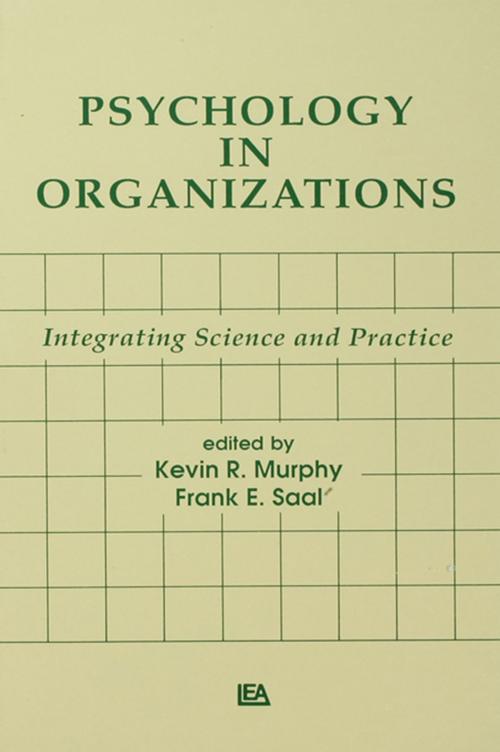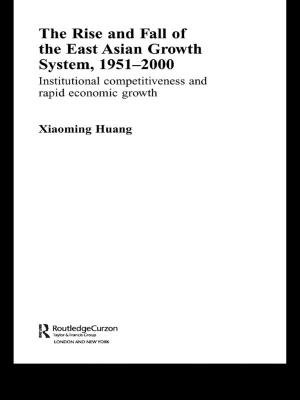Psychology in Organizations
integrating Science and Practice
Nonfiction, Health & Well Being, Psychology, Occupational & Industrial Psychology| Author: | ISBN: | 9781134750610 | |
| Publisher: | Taylor and Francis | Publication: | September 5, 2013 |
| Imprint: | Psychology Press | Language: | English |
| Author: | |
| ISBN: | 9781134750610 |
| Publisher: | Taylor and Francis |
| Publication: | September 5, 2013 |
| Imprint: | Psychology Press |
| Language: | English |
This book deals with two key questions. First, is there a firm scientific basis for the major applications of psychology in organizations? Second, does the practice of psychology in organizations contribute in any meaningful way to psychological research? This text attempts to answer these questions by describing some of the unique ways in which Industrial/Organizational (I/O) psychologists integrate science and practice in applying psychology in organizations. The editors of this volume believe that there is great potential for the effective interplay of science and practice in I/O psychology. Aware, however, that much work must still be done before a truly effective integration can be achieved and maintained, they have created a text that offers specific suggestions for improvement as well as many examples of successful integration. Psychology in Organizations explores the unique relationship between science and practice within industrial/organizational psychology. The contributors seek to answer two main questions:
* Is there a firm scientific basis for the major applications of psychology in organizations?
* Does the practice of psychology in organizations contribute in any meaningful way to psychological research?
After an initial examination of the industrial/organizational psychologist as a scientist and practitioner, Psychology in Organizations looks at specific roles played in such issues as job performance and productivity, sexual harassment, drug abuse, and drug testing. A final chapter looks at both the past and future of the field and suggests future applications.
This book deals with two key questions. First, is there a firm scientific basis for the major applications of psychology in organizations? Second, does the practice of psychology in organizations contribute in any meaningful way to psychological research? This text attempts to answer these questions by describing some of the unique ways in which Industrial/Organizational (I/O) psychologists integrate science and practice in applying psychology in organizations. The editors of this volume believe that there is great potential for the effective interplay of science and practice in I/O psychology. Aware, however, that much work must still be done before a truly effective integration can be achieved and maintained, they have created a text that offers specific suggestions for improvement as well as many examples of successful integration. Psychology in Organizations explores the unique relationship between science and practice within industrial/organizational psychology. The contributors seek to answer two main questions:
* Is there a firm scientific basis for the major applications of psychology in organizations?
* Does the practice of psychology in organizations contribute in any meaningful way to psychological research?
After an initial examination of the industrial/organizational psychologist as a scientist and practitioner, Psychology in Organizations looks at specific roles played in such issues as job performance and productivity, sexual harassment, drug abuse, and drug testing. A final chapter looks at both the past and future of the field and suggests future applications.















